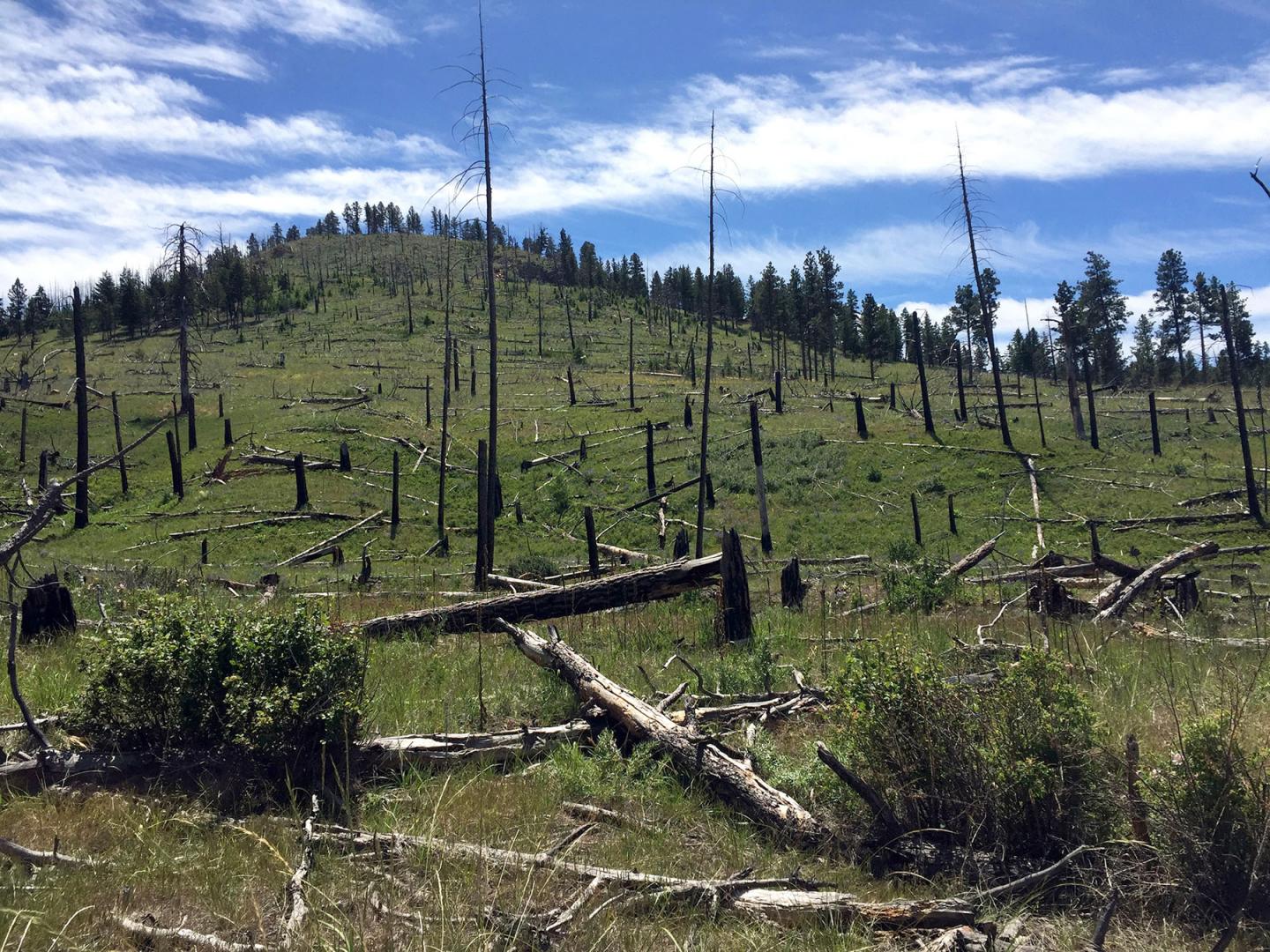
Credit: Courtesy of Kimberley Davis
MISSOULA – New University of Montana research suggests climate change makes it increasingly difficult for tree seedlings to regenerate following wildfires in low-elevation forests, which could contribute to abrupt forest loss.
The study, “Wildfires and Climate Change Push Low-elevation Forests Across a Critical Climate Threshold for Tree Regeneration,” was published March 11 in the Proceedings of the National Academy of Sciences and is available online at http://bit.
Kimberley Davis, a postdoctoral research associate in the W.A. Franke College of Forestry and Conservation at UM, and her co-authors examined the relationship between annual climate and post-fire regeneration of ponderosa pine and Douglas fir in low-elevation forests of western North America.
“Forests in the western U.S. are increasingly affected by both climate change and wildfires,” said Davis, the study’s lead author. “The ability of forests to recover following wildfire depends on annual climate conditions, because tree seedlings are particularly vulnerable to hot and dry weather. We wanted to identify the specific conditions necessary for post-fire tree regeneration to better understand how climate change has been affecting forests through time.”
The authors used tree rings to determine establishment dates of more than 2,800 trees that regenerated after fires in Arizona, California, Colorado, Idaho, Montana and New Mexico between 1988 and 2015. Annual tree regeneration rates were much lower when seasonal climate conditions, including temperature, humidity and soil moisture, crossed specific threshold values.
Over the past 20 years, climate conditions have crossed these thresholds at the majority of study sites, leading to abrupt declines in how often annual conditions are suitable for tree regeneration. The study results highlight how future fires in similar sites may catalyze transitions from forest to non-forest ecosystems.
“Adult trees can survive in warmer and drier conditions than seedlings, and our study found that some low-elevation areas that are currently forested no longer have climate conditions that are suitable for tree regeneration,” Davis said. “In these areas, high-severity fire may lead to ecosystem transitions from forests to grasslands or shrublands.
“It is important to understand how climate change and wildfires will affect tree regeneration because forests are important economically, ecologically and culturally,” she said. “Ponderosa pine and Douglas fir are two of the most dominant tree species in the western U.S., and they are critical for the regional forestry industry. Forests also contain high levels of biodiversity and provide a variety of ecosystem services, such as carbon sequestration and water regulation and supply. Additionally, people love to recreate in forests, which is an increasingly important part of the economy in western states.”
###
Other UM co-authors include Solomon Dobrowski, Philip Higuera, Anna Sala and Marco Maneta. Additional co-authors include researchers from the U.S. Forest Service; the University of Colorado, Boulder; and the Aldo Leopold Wilderness Research Institute.
Media Contact
Kimberley Davis
[email protected]
Original Source
http://bit.
Related Journal Article
http://dx.




